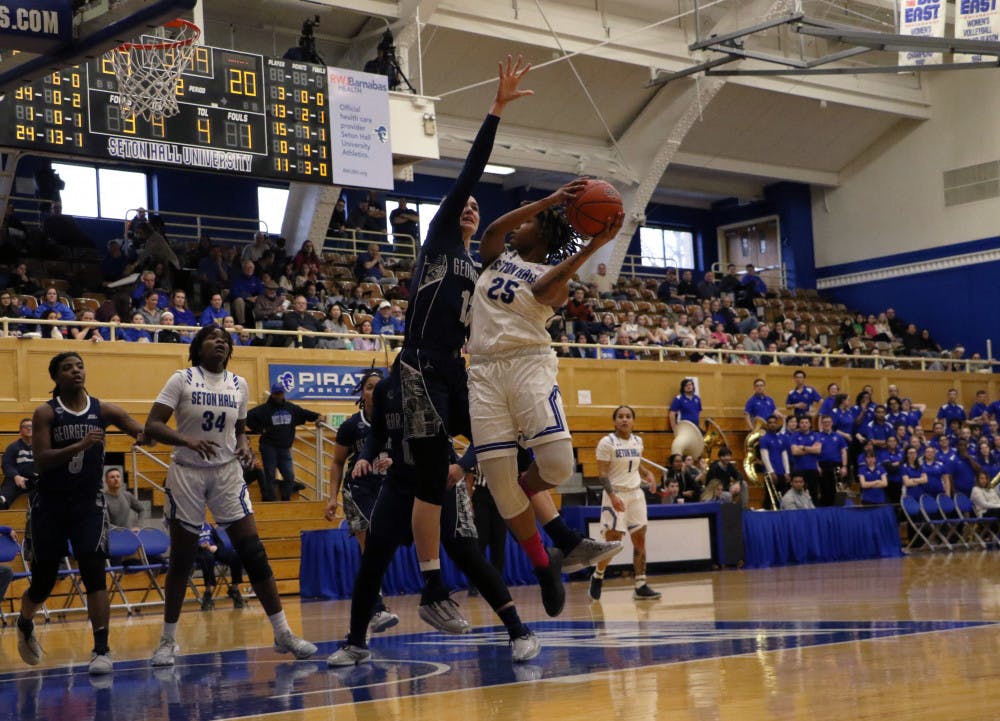[caption id="" align="alignnone" width="502"] selmawaterworksandsewer.com[/caption]
A wave of student activism has swept college campuses across the country.
The movement first hit mainstream news when students at the University of Missouri took action to end an alleged atmosphere of campus racism, which resulted in the University’s president stepping down. The activism continued as students joined forces nationwide at universities such as Yale, Ithaca, Brown and Princeton to combat issues of racism and sexism, and to push for diversity.
Seton Hall is no stranger to student activism. Protests mobilized hundreds of students on campus during the late 60s and early 70s, according to campus archives. It appears that similar activism has yet to gain traction on Seton Hall’s campus today, however, the conversation of diversity and equality is still present for many community members.
In an exclusive interview with the Setonian, University President Dr. A. Gabriel Esteban said that at this time he doesn’t particularly see this wave of activism spreading to Seton Hall.
“If you look at our student population, just look around you, our leadership, you see that it’s a very diverse group of individuals,” he said. “You look around and see more and more student activism which is not a bad thing,” he added. “I think it can be used to affect meaningful change.”
On Nov. 11 more than 70 students took part in a demonstration on the Green to show support for their student peers at the University of Missouri. As previously reported by The Setonian, executive board members from the Black Student Union, the African Student Association, the National Council of Negro Women, Haitian Organization Promoting Peace, Black Men of Standard, the West Indian Student Organization and the Martin Luther King Scholarship Association organized the event.
Joli Doñé, president of the Black Student Union and Mu Sigma Upsilon Sorority Inc., organized the event with other student leaders. “The ultimate goal was to create awareness on the issue and emphasize the importance of being active,” she said.
Doñé added, “Students at SHU have a more inclusive and diverse environment where issues of race (and) sexism are not as prevalent, but still exist. So it’s important that we remain active in trying to combat any of the inequalities we face or witness our fellow students, faculty or administrators facing.”
Doñé said that the organization at this time has no specific plans for more events of this nature, but in the future the hope to continue to spread awareness that “the issue of race is not only an issue that should be combated by minorities, but by all students regardless of race.”
Dr. Leslie Bunnage, associate professor of sociology at Seton Hall, said that campus activism is a topic frequently discussed by students in her classes. “I feel that there is less political activity here than a lot of comparable campuses,” she said. “My guess is there is a decent chance that even more of this stuff is going to percolate. I feel the tendency at Seton Hall is that we’re just a little bit later to student activism; other campuses tend to be at the forefront.”
According to Setonian archives, students actively engaged in campus activism in the 60s and 70s. For example, in 1965 approximately 350 Seton Hall students, faculty and administrators held a march from campus to the Essex County Courthouse in solidarity with civil rights movement protests in Selma, Alabama.
“I think most administrators and most college campuses recognize that student activism is, in some ways, part of the process for a lot of people of becoming more educated,” Bunnage said.
“With more education comes a sense of responsibility, comes an empowerment,” she said.“They see it as reflection of all the kinds of things they think should be honed in their students.”
Teagan Sebba, the Student Government Association (SGA) president, said she feels there is an “inclusive and diverse” climate on campus, which has partly contributed to SHU’s lack of protests. “I recognize that I am privileged enough to have never felt unsafe or discriminated against on this campus, while other students with different backgrounds may have had a different experience,” she said.
Sebba added, “I believe that activism is so important. Every big revolution and important change in our country has been sparked by a few people with a passion for justice and change.”
Mary Marshall can be reached at mary.marshall@student.shu.edu.
selmawaterworksandsewer.com[/caption]
A wave of student activism has swept college campuses across the country.
The movement first hit mainstream news when students at the University of Missouri took action to end an alleged atmosphere of campus racism, which resulted in the University’s president stepping down. The activism continued as students joined forces nationwide at universities such as Yale, Ithaca, Brown and Princeton to combat issues of racism and sexism, and to push for diversity.
Seton Hall is no stranger to student activism. Protests mobilized hundreds of students on campus during the late 60s and early 70s, according to campus archives. It appears that similar activism has yet to gain traction on Seton Hall’s campus today, however, the conversation of diversity and equality is still present for many community members.
In an exclusive interview with the Setonian, University President Dr. A. Gabriel Esteban said that at this time he doesn’t particularly see this wave of activism spreading to Seton Hall.
“If you look at our student population, just look around you, our leadership, you see that it’s a very diverse group of individuals,” he said. “You look around and see more and more student activism which is not a bad thing,” he added. “I think it can be used to affect meaningful change.”
On Nov. 11 more than 70 students took part in a demonstration on the Green to show support for their student peers at the University of Missouri. As previously reported by The Setonian, executive board members from the Black Student Union, the African Student Association, the National Council of Negro Women, Haitian Organization Promoting Peace, Black Men of Standard, the West Indian Student Organization and the Martin Luther King Scholarship Association organized the event.
Joli Doñé, president of the Black Student Union and Mu Sigma Upsilon Sorority Inc., organized the event with other student leaders. “The ultimate goal was to create awareness on the issue and emphasize the importance of being active,” she said.
Doñé added, “Students at SHU have a more inclusive and diverse environment where issues of race (and) sexism are not as prevalent, but still exist. So it’s important that we remain active in trying to combat any of the inequalities we face or witness our fellow students, faculty or administrators facing.”
Doñé said that the organization at this time has no specific plans for more events of this nature, but in the future the hope to continue to spread awareness that “the issue of race is not only an issue that should be combated by minorities, but by all students regardless of race.”
Dr. Leslie Bunnage, associate professor of sociology at Seton Hall, said that campus activism is a topic frequently discussed by students in her classes. “I feel that there is less political activity here than a lot of comparable campuses,” she said. “My guess is there is a decent chance that even more of this stuff is going to percolate. I feel the tendency at Seton Hall is that we’re just a little bit later to student activism; other campuses tend to be at the forefront.”
According to Setonian archives, students actively engaged in campus activism in the 60s and 70s. For example, in 1965 approximately 350 Seton Hall students, faculty and administrators held a march from campus to the Essex County Courthouse in solidarity with civil rights movement protests in Selma, Alabama.
“I think most administrators and most college campuses recognize that student activism is, in some ways, part of the process for a lot of people of becoming more educated,” Bunnage said.
“With more education comes a sense of responsibility, comes an empowerment,” she said.“They see it as reflection of all the kinds of things they think should be honed in their students.”
Teagan Sebba, the Student Government Association (SGA) president, said she feels there is an “inclusive and diverse” climate on campus, which has partly contributed to SHU’s lack of protests. “I recognize that I am privileged enough to have never felt unsafe or discriminated against on this campus, while other students with different backgrounds may have had a different experience,” she said.
Sebba added, “I believe that activism is so important. Every big revolution and important change in our country has been sparked by a few people with a passion for justice and change.”
Mary Marshall can be reached at mary.marshall@student.shu.edu.

Comments




